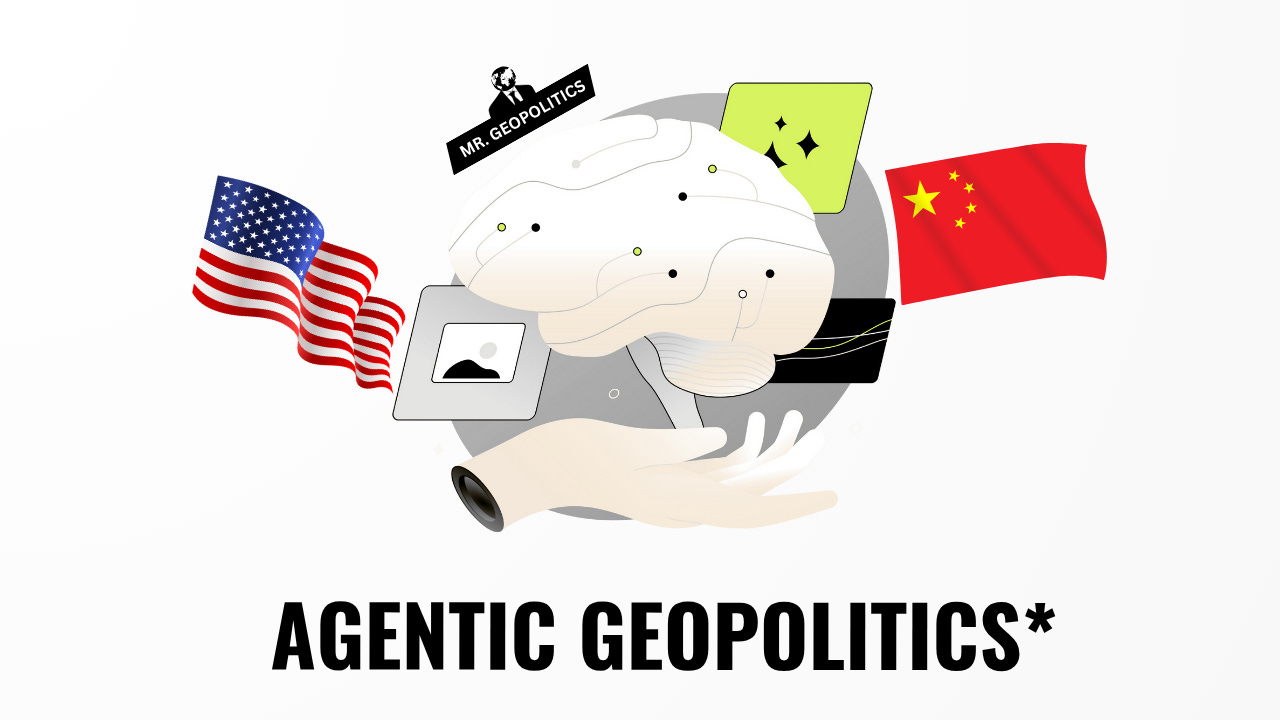The Beginning of "Agentic Geopolitics"
AI-geopolitics shifts into a higher gear
The US AI firm Anthropic recently unveiled that it stopped the world’s first large-scale “AI cyber attack.” The group behind it has been linked to China. Anthropic said that its agentic AI capabilities were exploited and its guardrails bypassed, as the Chinese state-sponsored collective presented themselves as a legitimate cybersecurity firm and only provided “pieces” to the AI to ensure no red flags were raised. The end result: a cyber attack targeting 30 organizations, from financial institutions to major chemicals companies.
Not surprisingly, as the global stock selloff accelerates and the China-Japan feud worsens, Anthropic’s announcement has received less attention than expected. However, the significance remains. The convergence of geopolitics and AI has reached a new inflection point.
AI-Geopolitics Goes Commercial
What Anthropic has uncovered signals that state actors are increasingly turning to commercial AI services to advance geopolitics.
The same agentic AI that a team of marketers is using in an agency is also being leveraged by a team of hackers in a state-funded operation. This puts AI companies at the tip of the spear when it comes to how governments defend their borders. If Anthropic failed in thwarting the cyber attack, a range of companies and countries may have been disrupted.
More importantly, though, is that geopolitics is moving towards automation.
If groups can delegate tasks to AI systems, like parsing through huge data sets or crunching the internet for intelligence on a person, then humans are no longer in the driver’s seat of the global fights. A growing percentage of a “geopolitical operation” (i.e., take down global DNS servers) could soon be carried out by AI systems that have no idea of what they are doing.
Geopolitical Reasoning*
Such a reality raises the need for new reasoning in AI models. This is not just about reasoning around ethics, depth of knowledge, or human logic. There is a growing gap when it comes to “geopolitical reasoning*” - a term I coined when I published the first book on geopolitics and AI in 2018.
AI models need to understand the geopolitics of what they are being tasked to do.
A dangerous future is also forming as AI models move from centralization (i.e., owned by OpenAI, Anthropic, Google) to decentralization (i.e., built for the black market, operating in the grey, piggybacking illegally on global data centers).
The next advanced AI agents might not come from Silicon Valley, but from rogue collectives that offer them to the world - including to adversarial actors. At this point, alarm bells will ring across countries. If hundreds of nefarious groups have access to AI agents that have no safeguards or parameters, the chaos they can introduce is unimaginable.
New Doctrines
Underpinning the rapid development of AI is geopolitics. As tensions worsen between nations, governments are pouring resources into areas that give them an edge - like AI. This is giving rise to unorthodox scenarios, such as disrupting an adversary with agentic cyber attacks.
For the entire AI space, the big question is how it ensures AI services are advancing the needs of the community or the nation, not adversaries or enemies. This requires every AI firm to develop its own geopolitical doctrine. Who is their AI for? What does their AI support? And, perhaps most importantly, who should not have access?
-ABISHUR PRAKASH AKA. MR. GEOPOLITICS
Mr. Geopolitics is the property of Abishur Prakash/The Geopolitical Business, Inc., and is protected under Canadian Copyright Law. This includes, but is not limited to: ideas, perspectives, expressions, concepts, etc. Any use of the insights, including sharing or interpretation, partly or wholly, requires explicit written permission.






